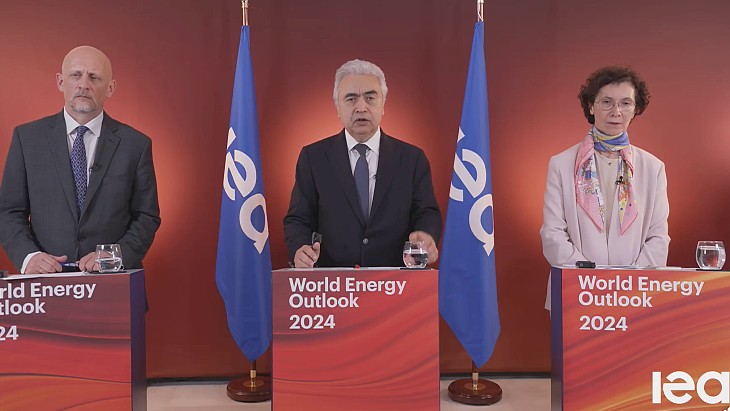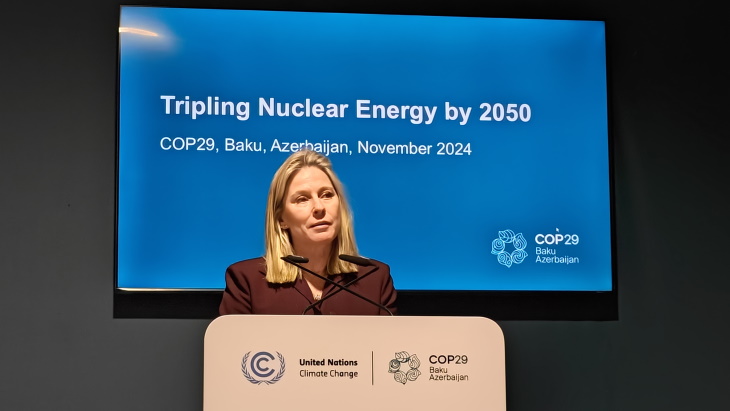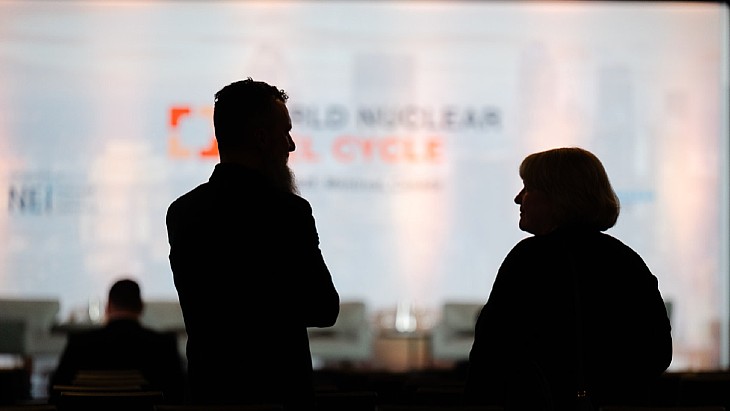Clean energy should be investment priority: IEA
.jpg)
The emerging and developing countries - or EMDEs - that are the focus of the report make up more than two-thirds of the world's population and are responsible for more than 90% of the global emissions increase, yet only account for about 20% of global clean energy investments, IEA Executive Director Fatih Birol said at the report's launch yesterday. Energy-related carbon dioxide emissions from these economies - which are mostly in Asia, Africa and Latin America - are set to grow by 5 billion tonnes over the next two decades, the report finds, but a "massive surge in clean energy investment in the developing world" could put emissions on a different course.
"In many emerging and developing economies, emissions are heading upwards while clean energy investments are faltering, creating a dangerous fault line in global efforts to reach climate and sustainable energy goals," Birol said. "Countries are not starting on this journey from the same place - many do not have access to the funds they need to rapidly transition to a healthier and more prosperous energy future - and the damaging effects of the COVID-19 crisis are lasting longer in many parts of the developing world."
Transforming the power sector and boosting investment in the efficient use of clean electricity are key pillars of sustainable development, the report finds. Electricity consumption in emerging and developing economies is set to grow around three times the rate of advanced economies.
The report references three of the IEA's forward-looking, climate-driven scenarios: Net Zero Emissions by 2050 (NZE), under which the global energy sector to achieve net-zero CO2 emissions by 2050, with advanced economies reaching net zero emissions in advance of others; Sustainable Development Scenario (SDS), under which advanced economies reach net-zero emissions by 2050 and all EMDEs by 2070 at the latest, limiting temperature rise to 1.65 degrees Celsius; and the Stated Policies Scenario (STEPS), which works forward from policy settings and constraints, including the effects of the Covid-19 pandemic, that are already in place.
In these IEA scenarios, renewable power needs to account for more than 90% of the generation capacity added over the next decade in EMDEs, the report says. However, dispatchable, clean power is also critical to integrate the "vast amount" of wind and solar. The main sources of low-carbon dispatchable power include nuclear, hydropower, bioenergy and geothermal.
Investments in nuclear power in EMDEs are concentrated in a handful of countries, led by India, where it will increase rapidly, the report notes. Under NZE, investment of USD39 billion in nuclear would be required in EMDEs from 2026 to 2030, the report finds, while a total of USD573 billion would be invested in renewables. Under the SDS, investments in nuclear energy would be USD27 billion from 2026 to 2030, while the STEPS scenario would see nuclear energy investments in EMDEs of USD23 billion. Investment spending in nuclear in EMDEs for the period 2016-2020 was USD11 billion, the report says.
"A major catalyst is needed to make the 2020s the decade of transformative clean energy investment," Birol said. "The international system lacks a clear and unified focus on financing emissions reductions and clean energy – particularly in emerging and developing economies. … Our report is a global call to action - especially for those who have the wealth, resources and expertise to make a difference - and offers priority actions that can be taken now to move things forward fast."
Demetrios Papathanasiou, global director for Energy and Extractives at the World Bank, said: "As we expand energy access, we also need a global transition to low-carbon energy. It is critical to develop solutions that make energy systems more resilient to climate change and other crises. With the right policies and investments, countries can achieve lasting economic growth and poverty reduction without degrading the environment or aggravating inequality. The broader financial sector can and must play a key role in achieving the goals of the Paris Agreement by mobilising capital for green and low-carbon investments, while managing climate risks."

_99697.jpg)







_79311.jpg)


